Whole Foods 'Happy Meat' Supplier Exposed
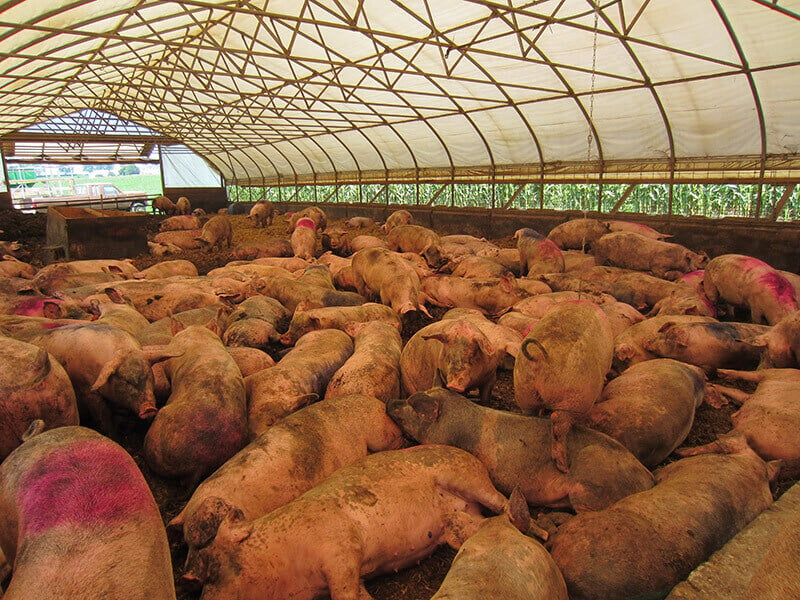
Just How Humane Is Whole Foods’ ‘Humanely Raised’ Pork?
If you’ve ever shopped at Whole Foods, you may have seen signs posted in the meat department that say things like “enriched environment” and “treated humanely.” But what a PETA investigator documented at a Pennsylvania pig farm that supplies Whole Foods reveals that these signs are probably worth less than the recycled paper they’re printed on.
In 2015, a PETA observer worked for more than two months at Sweet Stem Farm, LLC, a Lancaster County farm that produces “humanely raised pork.“ Sweet Stem Farm is certified as a “Step 2” pig farm, according to Whole Foods’ “5-StepTM” standards. The majority of Whole Foods–supplying pig farms only meet “Step 1” requirements, so as a “Step 2” farm, Sweet Stem Farm is expected to meet higher welfare standards than most of the others. Whole Foods touts “Step 2” farms as spacious and having an enriched environment to keep the pigs entertained. Meat counter employees regularly mislead customers about the practices at supplier farms, too, even though PETA has already documented this and shared it with Whole Foods and Whole Foods pledged to stop. The employees commonly say that pigs on “Step 2” farms spend time outdoors even though nearly 80 percent of the farms that have adopted these standards are not required to give pigs access to the outdoors.
Meet Your 'Happy Meat'
Sweet Stem Farm’s website includes photos of cute piglets and depicts bucolic scenes with fluffy sheep in green fields. The owners reference their “unwavering commitment to the humane treatment of our animals” and refer to their products as “happy meat.”
The pigs observed by our eyewitness were never given the opportunity to touch the farm’s lush green grass. They spent almost all their time crammed into crowded sheds on concrete floors. Some of the pigs were allotted about 5 square feet of floor space each. The only time the pigs were ever outside was when they were trucked from one shed to another, put on a scale to be weighed, or sent to slaughter. Some pigs were kept in semi-darkness deep inside a barn.
Whole Foods claims that these pigs live in an “enriched environment,” which typically amounted to some straw strewn over the concrete flooring. Sometimes, 200 pigs were provided with a few chains or rubber hoses to play with, which Whole Foods–supported standards specifically list as “not … acceptable enrichments” because they are not “valuable/satisfying to the pigs,” as “extensive research” demonstrates. Whole Foods–supported standards call for “thermal comfort” for all pigs at all times, yet during hot weather, hundreds of pigs had access to just one water sprinkler.

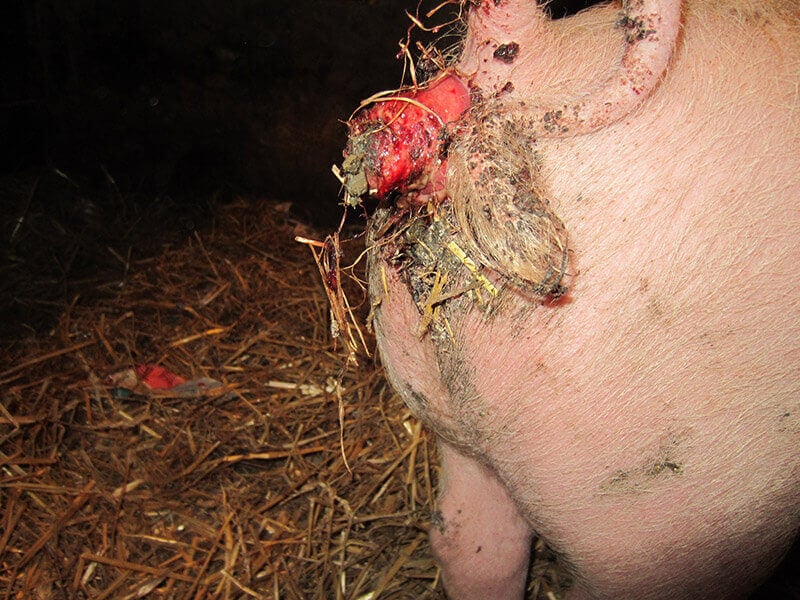
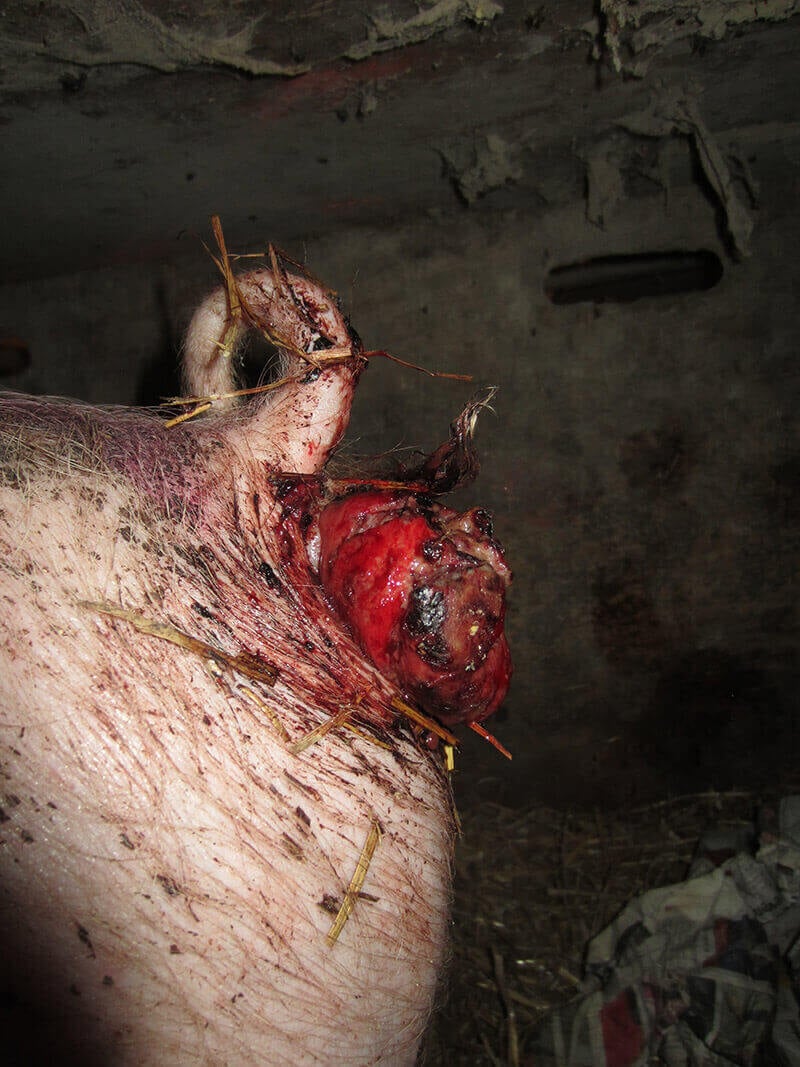

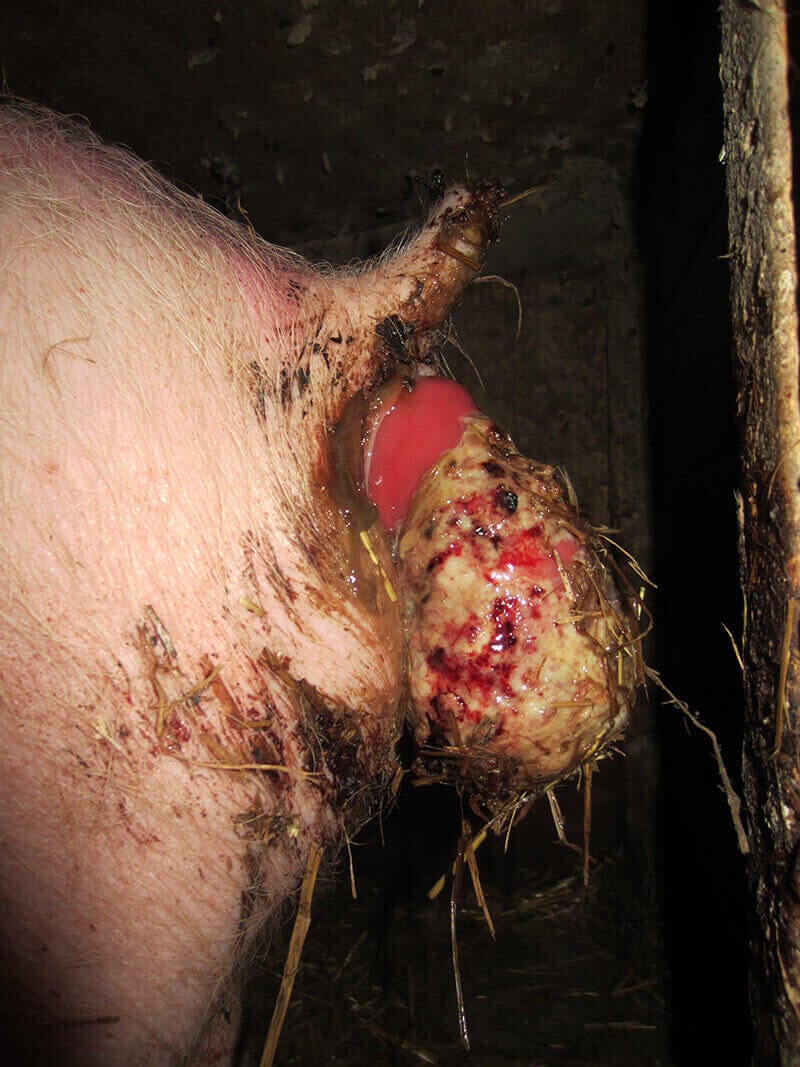
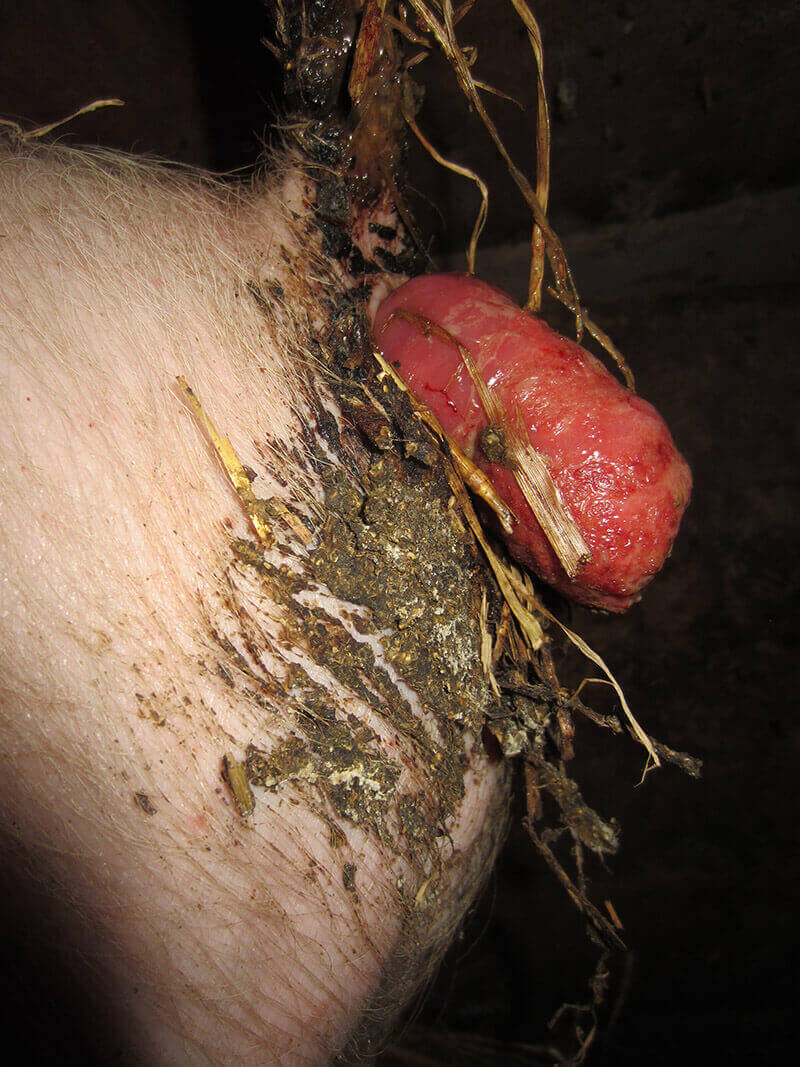
Sick and Severely Injured Pigs Left for Weeks—With No Veterinarian in Sight to Care for Them
As shown above, even where there are standards to help the animals, they’re commonly ignored, despite Whole Foods’ claim that “[b]efore we do any purchasing, we know exactly how the animal was raised, what it ate and where it came from.” The standards require that sick or injured pigs be promptly euthanized if necessary, but PETA’s eyewitness saw obviously sick and injured pigs’ condition worsen for days or even weeks. If a veterinarian did provide these animals with care, the observer never saw it, despite more than two months of working full-time at the farm.
One pig ran an intermittent fever for up to a month before finally being shot in the head and killed. Another pig whose apparent neurological ailments caused her to go lame was left for eight days until she, too, was shot. The observer documented seven pigs with grotesque rectal prolapses—as large as an orange and dripping with blood. The pigs were left with these often-painful conditions for up to 24 days.
The veterinarian who doled out medication—from his office—apparently never even saw those animals. But PETA’s observer saw countless pigs who had been given antibiotics loaded into trucks bound for a slaughterhouse that supplies Whole Foods, which boasts, “Our Meat: No Antibiotics, Ever.”
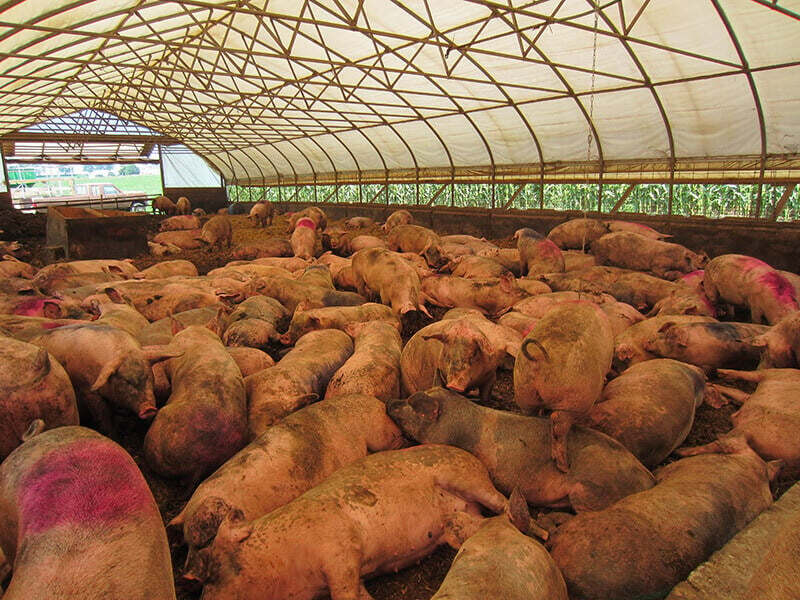

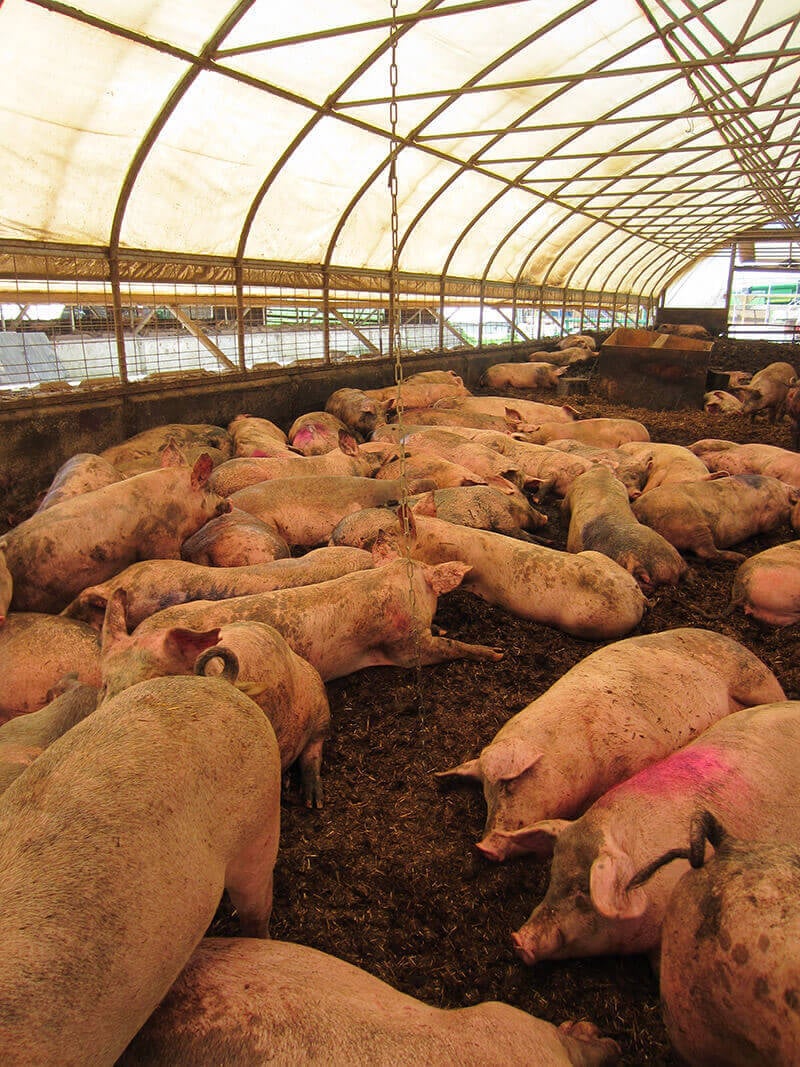
PETA’s eye witness also documented the following:
Whole Foods–supported standards assume and even accept that many animals may suffer and die before they ever make it to slaughter. A farm with 1,000 pigs can have 50 who are lame—every single day—and another 20 who die for any reason and still be approved by auditors, who apparently visit only every 15 months. Even if 150 out of every 1,000 piglets die on a breeding farm, it can still be approved by Whole Foods’ “humane” standards. Based on Whole Foods’ numbers, the average farm approved by these standards raises and sends to slaughter 70,000 animals a year.
You Can Help Stop This!
Sign our petition urging Whole Foods to stop duping consumers with dubious “humane meat” claims. Avoid all animal-derived foods, even so-called “humane,” “organic,” and “free-range” meat, eggs, and milk. As long as profit is involved, animal welfare always takes a back seat.
